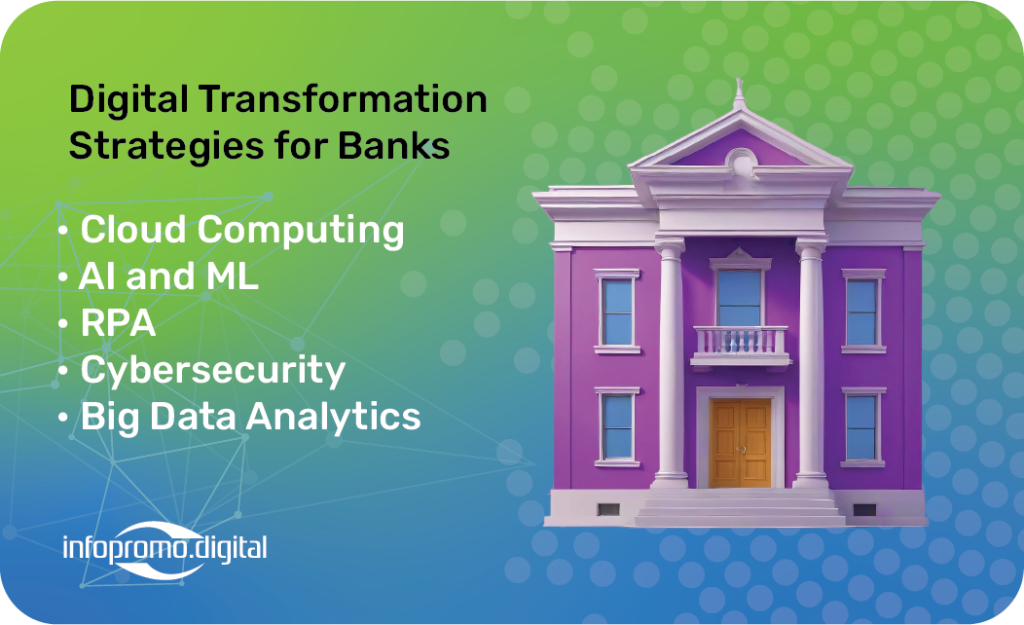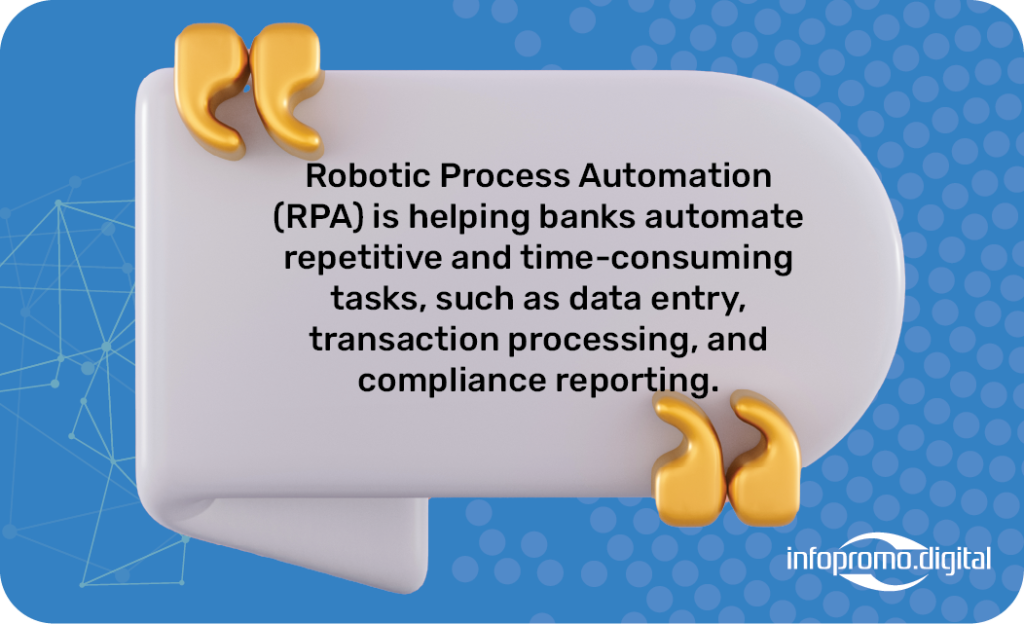
In today’s fast-paced financial landscape, banks and financial institutions must continuously innovate to stay competitive. Digital transformation has emerged as a key strategy for modernizing operations, enhancing customer experiences, and improving efficiency. This blog explores how banks are leveraging digital technologies to transform their services and maintain a competitive edge.

Embracing Cloud Computing Cloud computing is revolutionizing the banking industry by providing scalable, secure, and cost-effective solutions. Banks are increasingly migrating their data and applications to the cloud to enhance operational flexibility and reduce IT costs. Cloud platforms offer robust security measures, ensuring data protection and compliance with regulatory standards. Additionally, cloud computing enables seamless integration of new technologies, facilitating faster deployment of innovative banking services.
Adopting Artificial Intelligence and Machine Learning Artificial Intelligence (AI) and Machine Learning (ML) are at the forefront of digital transformation in banking. These technologies are used to enhance customer service, streamline operations, and improve risk management. AI-powered chatbots provide 24/7 customer support, handling routine inquiries and freeing up human agents for more complex tasks. ML algorithms analyze vast amounts of data to detect fraud, assess credit risk, and personalize customer experiences, leading to better decision-making and increased operational efficiency.
Implementing Robotic Process Automation (RPA) Robotic Process Automation (RPA) is helping banks automate repetitive and time-consuming tasks, such as data entry, transaction processing, and compliance reporting. RPA solutions can perform these tasks with high accuracy and speed, reducing the need for manual intervention and minimizing the risk of errors. By automating routine processes, banks can focus on more strategic initiatives, improving overall productivity and customer satisfaction.
Enhancing Cybersecurity Measures With the rise of digital banking, cybersecurity has become a critical concern for financial institutions. Banks are investing in advanced security technologies, such as biometric authentication, encryption, and real-time threat monitoring, to protect sensitive customer data. Implementing robust cybersecurity measures not only safeguards against cyber threats but also builds trust with customers, ensuring their confidence in digital banking services.

Leveraging Big Data Analytics Big data analytics is transforming the way banks operate by providing valuable insights into customer behavior, market trends, and operational performance. By analyzing large datasets, banks can identify patterns and make data-driven decisions to improve customer experiences, optimize marketing strategies, and enhance risk management. Big data analytics also enables predictive modeling, helping banks anticipate customer needs and proactively address potential issues.
Conclusion Digital transformation is essential for banks to remain competitive in the evolving financial landscape. By embracing cloud computing, AI and ML, RPA, advanced cybersecurity measures, and big data analytics, financial institutions can modernize their operations, enhance customer experiences, and achieve greater efficiency. The future of banking lies in digital innovation, and those who invest in these strategies will lead the way.




